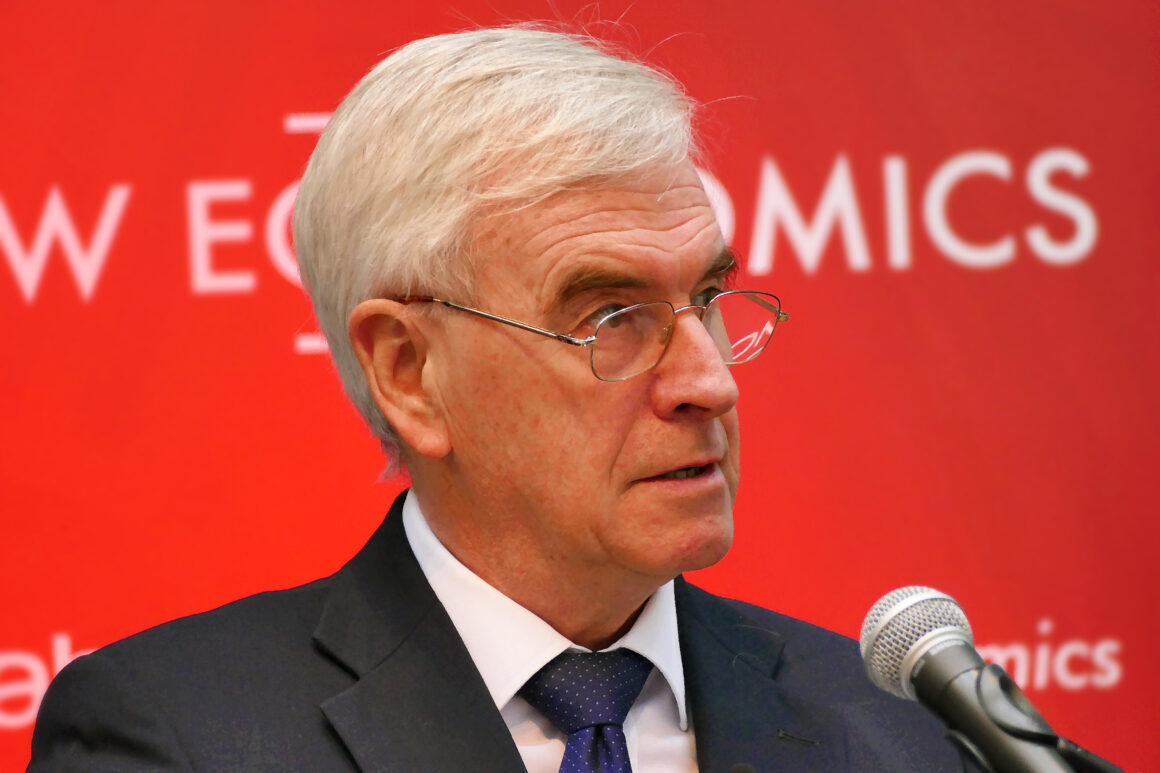

By Simon Hannah
JOHN McDonnell’s announcement at the 2018 Labour Party conference that companies with over 250 workers would have to give over 10 percent of their shares to their staff has been praised by some on the left and even got positive support in an opinion poll by Yougov.
The proposal will see companies create an Inclusive Ownership Fund (IOF), that would also give out £500 a year to workers. This is similar – though not the same – as the John Lewis model. It sees workers being turned into share holders both to give workers more say but also to boost productivity across the private sector.
This proposal is inspired by Rudolph Meidner, a Swedish social democratic economist who proposed that ultimately the 10 percent year on year share give away will see workers gain a controlling share holder vote after around 20 years.
Similar ideas had been proposed by West German unions in the 1970s and unions in the Netherlands. It was based on the principle that the workers should have a share in the profits generated by corporations. A version was introduced in Sweden by Meidner was actually implemented by social democrary in Sweden in the 1980s. It aimed to maleiorate the concentration of capital into the hands of the capitalist minority and to give employees more say in the company – killing two birds with one stone.
It failed for a number of reasons. Firstly the proposals were very limited – a hand ful of regional funds that after seven years only amounted to 5 percent of the total value of the Swedish stock market. Meidner himself regarded the effort as a “rather symbolic gesture”.
In his analysis of what went wrong Meidner argued that the loss of hegemonic power by the Swedish trade unions, the unravelling of the national wage agreements and the rise of growing internationalisation of the Swedish economy. A new right emerged in Sweden that blamed Keynesianism, strong unions and inefficient policies (like giving workers shares) for ‘socialist aggression’. The result was the neoliberal drive of the 1980s – something that produced the steady long term decline of Swedish social democracy and is now culminating in the rise of the far right.
The Meidner plan is being trumpetted by some on the left, especially around Jacobin. It is being revisited as a potential economic success that was ultimately defeated by political factors, namely the backsliding of Swedish social democracy.
But the Meidner plan also has the insidious affect of co-opting workers into the profitability of their companies. This undermines trade unionism and collective action, since both these things impact on profits and therefore on shares. The proposal for 10 percent would mean workers had no controlling say in the company – it would take over two decades of peaceful gradual transition in share ownership to achieve over 50 percent of shares owned by the workforce – plenty of time for a change in government or a counter offensive from the corporate elite somewhere along the line. Also the proposal will not apply to foreign owned companies, which in the context of the internationalised nature of the British economy, will leave a lot of companies out of the plan.
All of this is being heralded by some as a new form of class war but in fact it is a diversion from what is really needed – a revivied trade union movement with a militant leadership (through abolishing the anti union laws) and more expansive plans for public ownership under workers’ control. At the moment we are talking about rail and water and an expansion of co-ops – far too limited and timid.
And this debate comes to the core of what we are trying to achieve. Are we looking at social democracy, a mixed economy with some private sector regulation – or are we aiming for a socialist transformation of the economy, based on a democratically decided economic plan and the abolition of capitalism? As the world hurtles towards environmental catastrophe around 2030, waiting 20 years for 51% shares on the boards of some companies looks grimly unambitious.
Simon Hannah is a member of Tooting CLP and joint branch secretary of Lambeth Unison. He is the author of A Party With Socialists In It: A History of the Labour Left, published by Pluto